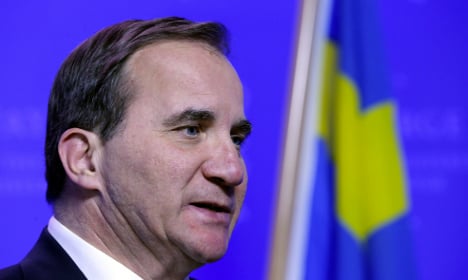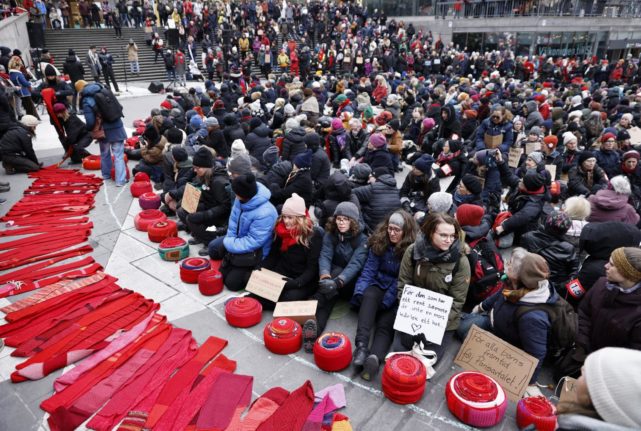“I am here for my child Dinalo and for all the kids. I am angry and sad that politicians in Sweden are acting against the climate,” Katarina Utne, 41, a mother of a four-year-old and human resources coach, told AFP.
The women unfurled their scarves and marched for several hundred metres, singing and holding placards calling to “save the climate for the children’s future”.
“The previous government was acting too slowly. The current government is going in the wrong direction in terms of climate policy,” said psychologist Sara Nilsson Lööv, referring to a recent report on Swedish climate policy.
The government, led by the conservative Prime Minister Ulf Kristersson and supported by the far-right Sweden Democrats, is in danger of failing to meet its 2030 climate targets, an agency tasked with evaluating climate policy recently reported.
According to the Swedish Climate Policy Council, the government has made decisions, including financial decisions, that will increase greenhouse gas emissions in the short term.
“Ordinary people have to step up. Sweden is not the worst country but has been better previously,” 67-year-old pensioner Charlotte Bellander said.
The global movement, Mothers Rebellion, was established by a group of mothers in Sweden, Germany, the USA, Zambia and Uganda.
It organises peaceful movements in public spaces by sitting and singing but does not engage in civil disobedience, unlike the Extinction Rebellion movement, which some of its organisers came from.



 Please whitelist us to continue reading.
Please whitelist us to continue reading.
Member comments